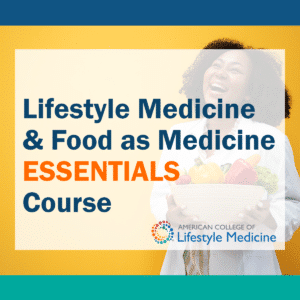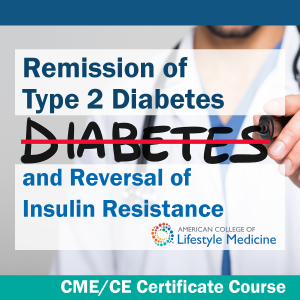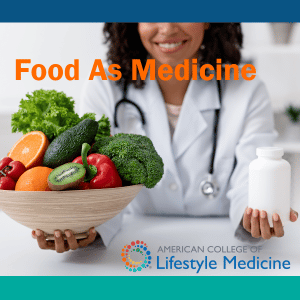Open-source Lifestyle Medicine Curriculum Available to All Medical Schools
A trailblazing U.S. medical school that was the first to fully integrate lifestyle medicine into all four years of its undergraduate curriculum is helping other medical schools worldwide incorporate the growing medical specialty into its programs.
“I encourage all medical schools to take advantage of this unique, free opportunity to help fill the gaping void of adequate lifestyle medicine training and prepare students to be leaders in our rapidly changing health care system.” – ACLM Past President Cate Collings, MD, MS, FACC, DipABLM.
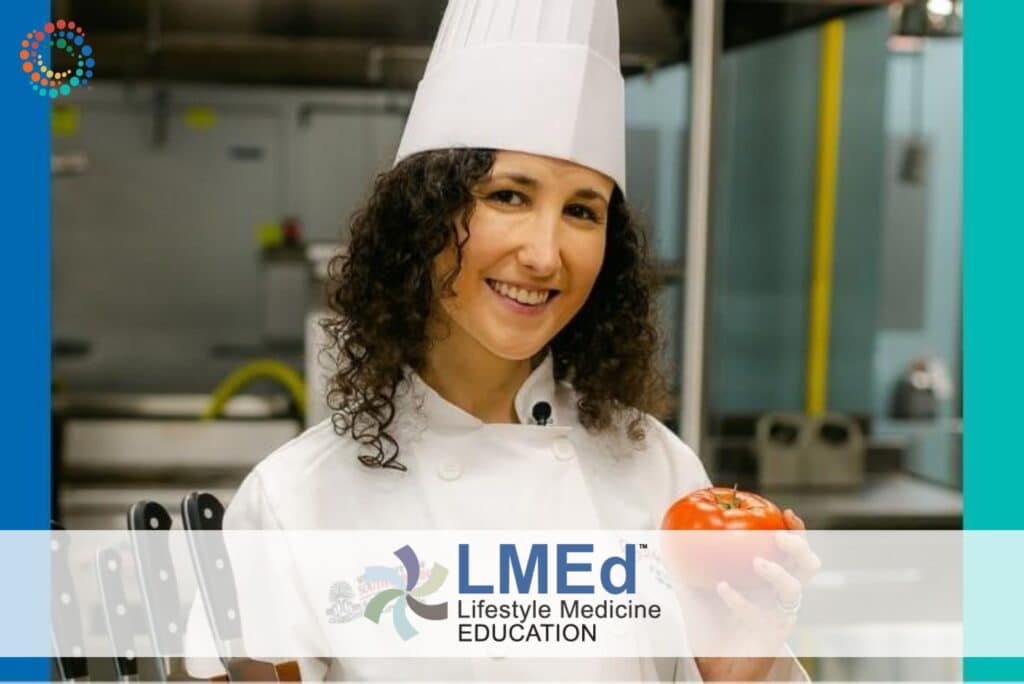
University of South Carolina School of Medicine Greenville (SOMG), in partnership with the American College of Lifestyle Medicine (ACLM), offers its Lifestyle Medicine Education (LMEd) curricular resources free to other medical and health professional schools. SOMG expanded this effort in September with a $4.8 million commitment to the White House Conference on Hunger, Nutrition, and Health that includes assisting other medical schools in implementing the open-source lifestyle medicine curriculum.
Lifestyle medicine is a medical specialty that uses therapeutic lifestyle interventions as a primary modality to treat chronic conditions including, but not limited to, cardiovascular diseases, type 2 diabetes, and obesity. Lifestyle medicine certified clinicians are trained to apply evidence-based, whole-person, prescriptive lifestyle change to treat and, when used intensively, often reverse such conditions. Applying the six pillars of lifestyle medicine—a whole-food, plant-predominant eating pattern, physical activity, restorative sleep, stress management, avoidance of risky substances and positive social connections—also provides effective prevention for these conditions.
Today 60 percent or more U.S. adults—and an alarmingly rising number of children—have already been diagnosed with one chronic disease, and an estimated 40 percent have two or more. Some 75 to 90 percent of chronic disease has been shown to be preventable by lifestyle modification, particularly through dietary change.
Nevertheless, medical students receive little or no education in lifestyle behaviors such as nutrition and physical activity. A 2019 systematic review published in The Lancet concluded that nutrition is insufficiently incorporated into medical education, regardless of country, setting, or year of medical education. These deficits affect students’ knowledge, skills, and confidence to implement nutrition care into patient care.
“By sharing and helping to implement its innovative, evidence-based lifestyle medicine curriculum with other medical schools, the USC School of Medicine Greenville is leading the way in ensuring that future generations of physicians leave medical school with a foundation of knowledge they need to use lifestyle medicine to prevent, treat and reverse noncommunicable chronic diseases,” said ACLM Past President Cate Collings, MD, MS, FACC, DipABLM. “I encourage all medical schools to take advantage of this unique, free opportunity to help fill the gaping void of adequate lifestyle medicine training and prepare students to be leaders in our rapidly changing health care system.”
LMEd evolved from the Lifestyle Medicine Education Collaborative founded by Eddie Phillips, MD, FACSM, and Jennifer Trilk, PhD, FACSM, DipACLM, in 2013 and co-directed with Dennis Muscato, MS. Supported by The University of South Carolina School of Medicine at Greenville, LMEd is now choosing to laser focus on expanding lifestyle medicine curricula in U.S. medical schools through offering open access to a collection of evidence-based curricular resources to train future clinicians in prevention and treatment of lifestyle-related diseases.
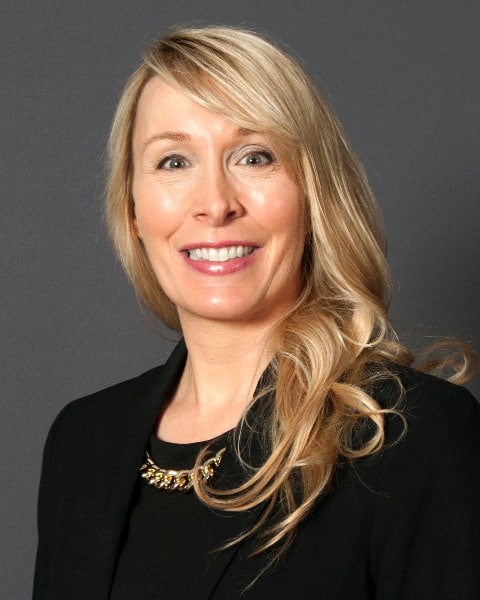
This collection can be used for core curricula, integration into existing curricula, electives, rotations, and scholarly concentrations. LMEd ̶ already reaching over 780 individuals, representing 57 countries and 26 U.S. medical schools ̶ provides curricular resources to build knowledge, skills and advocacy in clinicians for the prevention and treatment of lifestyle-related chronic disease.
Dr. Trilk was presented with a 2022 ACLM Special Recognition Award at Lifestyle Medicine 2022, ACLM’s annual conference, for her commitment to expand access to lifestyle medicine in undergraduate medical education worldwide.
The growing specialty of lifestyle medicine focuses on whole health, striving to be a resource for better patient health and life. “Lifestyle medicine is understanding the lifestyle-related root causes of our chronic disease and using this power to prevent, treat, and reverse these diseases in our patients and our population,” said Dr. Trilk, SOMG Associate Professor and Director of the Lifestyle Medicine Core Curriculum. “The University of South Carolina School of Medicine Greenville is proud to partner with ACLM to usher in this game-changing approach to medical education that will lead to healthier communities across the United States.”
In addition to its White House Conference commitment to assist other medical schools in implementing the lifestyle medicine curriculum, SOMG will also provide guidance to the National Board of Medical Examiners on adding content related to lifestyle medicine as well as provide 637 health systems and 755 YMCA associations with consulting and free access to its “Exercise is Medicine Greenville” toolkit, a comprehensive, 12-week program for using exercise to mitigate risk for chronic diet-related diseases.
Elise Kao, a second-year SOMG medical student and co-president of the school’s Lifestyle Medicine Interest Group (LMIG), said of the commitments that “If we truly want to make populations and communities healthier, we will need to incorporate lifestyle medicine.”
ACLM made a commitment in partnership with the White House conference to donate $24.1 million in in-kind educational coursework on nutrition and food as medicine to physicians and other medical professionals who are treating patients in areas with a high prevalence of diet-related disease. Clinicians can register at no charge for the “Lifestyle Medicine and Food as Medicine Essentials” online course at lifesylemedicine.org/WHConference.
“The White House Conference commitments and strategic partnership between ACLM and SOMG are another critical step in the evolution of the specialty of lifestyle medicine because these commitments cover the entire spectrum of medical education,” Dr. Collings said. “Together, we are helping create a future wherein lifestyle medicine is the foundation of health and all health care.”
LMED Lifestyle Medicine Education Curriculum
LMEd provides open access, evidence-based Lifestyle Medicine curricular resources to build knowledge, skills and advocacy in clinicians for the prevention and treatment of lifestyle-related chronic disease





